Farmers juggle myriad demanding tasks and challenges every day. There’s all that goes in to working the fields and tending to livestock, but there’s also the trials of building and running a sustainable business — no easy feat amid a changing climate and increasingly unpredictable market systems.
Success requires innovation, resourcefulness and care.
Helping farmers turn obstacles into opportunities is core to our mission at Heifer International. Here are six common challenges farmers face, and how we support them in finding the solutions they need to lead more resilient and dignified lives.
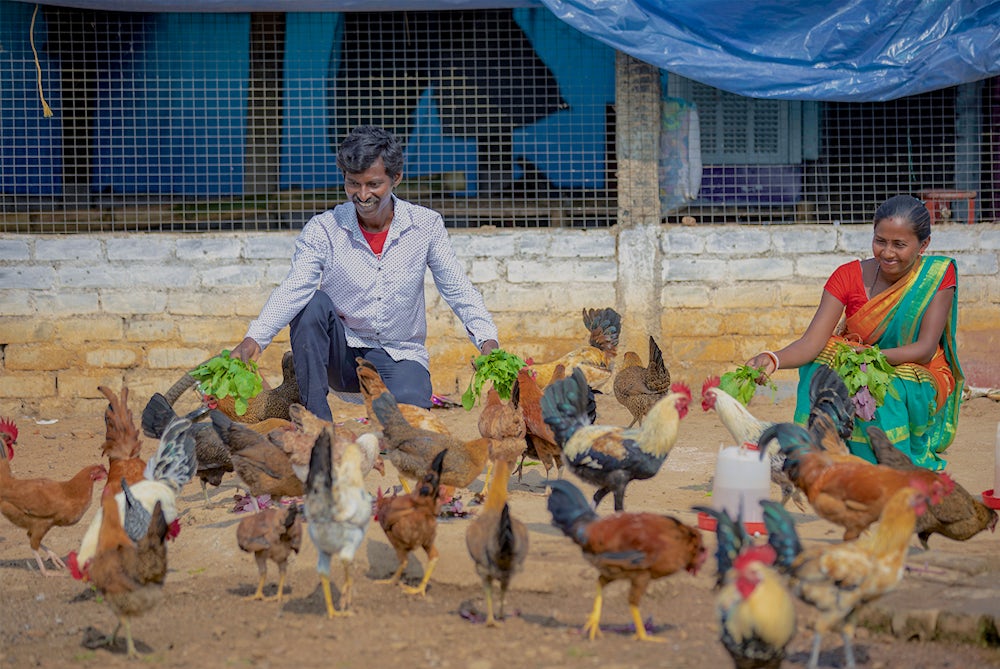
Small networks and limited access to markets are just some of the many challenges of building and growing a successful business in rural agricultural communities. For farmers, like Montoo Naik in India, the lack of opportunity forces many to migrate to cities in search of other forms of employment.
Heifer supports farmers with the training and tools they need to keep their enterprises close to home. During the pandemic, Montoo decided to return to his home village in Odisha state, where Heifer trained him to start a poultry farm. Now, at the helm of a thriving business, he’s already earning nearly 20% more than he did as a migrant worker.
“If you want to stay back in your village, you can start small and earn through it,” Montoo said. “You don’t always have to move. ... Opportunities exist here also.”
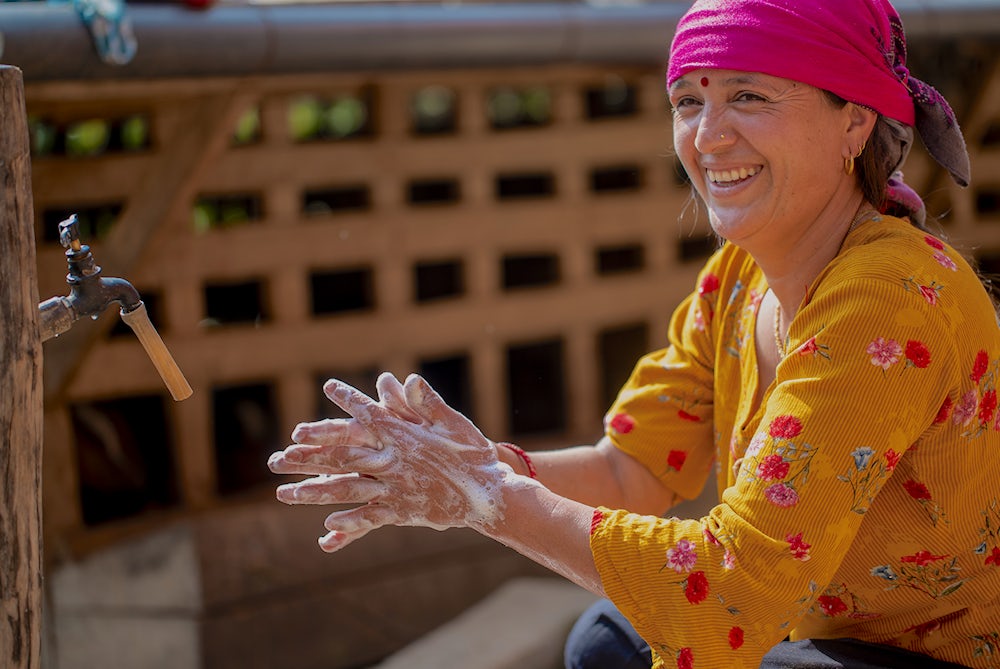
Small livestock are a lifeline for farming families living in rural communities, and vital for food security in places where poverty runs deep. But limited access to veterinary services, such as vaccinations and medications, holds many back from reaping the potential benefits.
When the pandemic struck, Heifer launched an online training to help women become community vets, like Kusu Maya Malla, a mother of three living in central Nepal. Kusu took the 35-day online course to become certified as an animal health service provider, learning everything from diagnosing diseases to growing nutritious fodder, and now helps over 600 local farmers keep their animals healthy and their livelihoods’ safe.
“With this single training, I have realized that I am not only capable of providing service as a technician making income, but I can be recognized in my community as well in a wider scope,” she said. “People know me as a fine vet technician with a successful goat farm.”
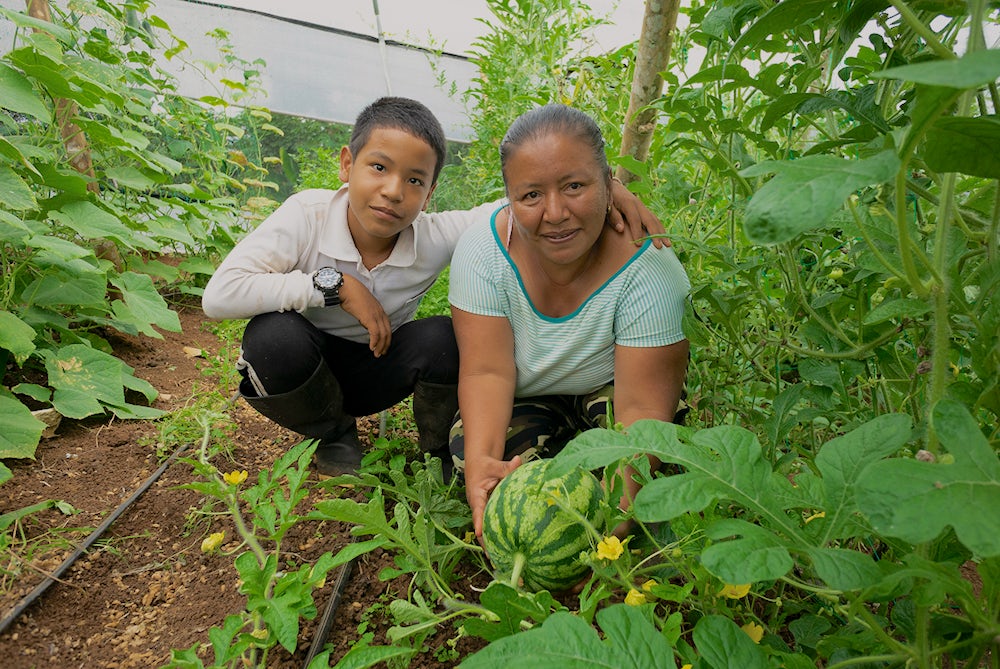
As the climate changes and becomes increasingly unpredictable, so do farmers’ chances of growing a healthy crop. To help protect their yields and ensure a successful season, farmers are often forced to resort to using chemical inputs.
On the Galápagos Islands, Heifer is helping farmers feed their communities without harming the environment, by building greenhouses. These climate-controlled spaces allow farmers to grow food year-round, cutting back on the region’s over-reliance on imported food. And for many, like farmer Irma Carrión Paz, the greenhouse has been life-changing.
“Until recently, I depended on my husband’s work,” said Irma, whose husband travels daily to work on a larger farm to supplement their household income. “Now, with this greenhouse, I have income that covers food, electricity and the phone.”
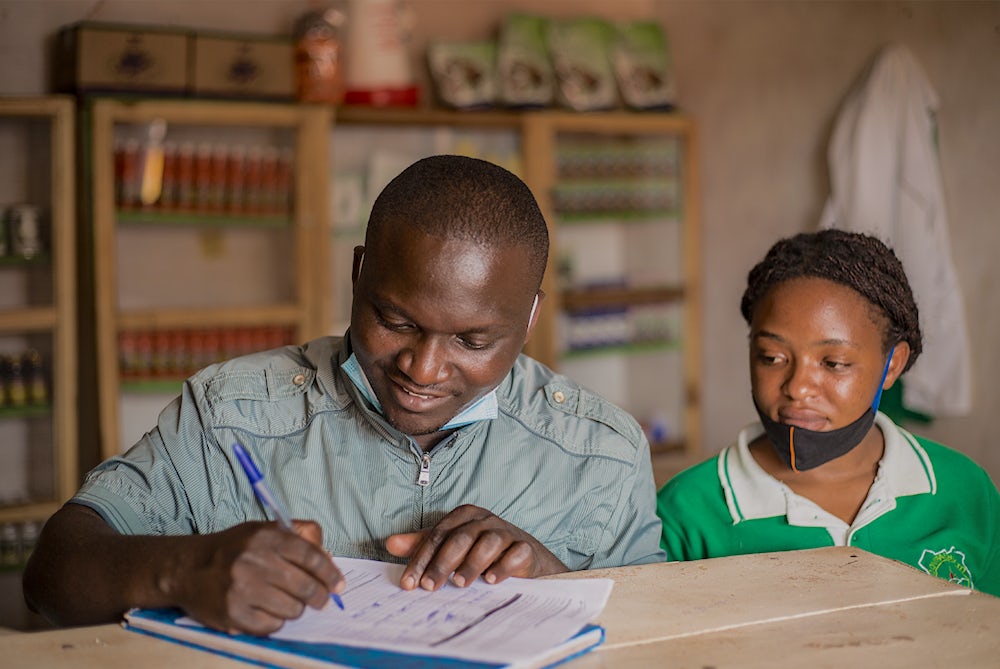
Finding secure and meaningful work opportunities isn’t easy, especially for youth living in rural areas where most jobs revolve around agriculture.
Around the world, Heifer’s support connects young people like Jeanne d’Arc Musanganyimana to cooperatives and job opportunities. A young mother living in Rwanda, Jeanne turned her life around when she was hired as an accountant by an agrovet company started by Heifer-trained veterinary workers. Before this job, she spent three years doing irregular work and barely making ends meet.
“Before joining this company, I didn’t have any source of income apart from working [in] casual construction, which was not regular,” said Jeanne. “When I got this job and started getting a salary, life started getting better.”
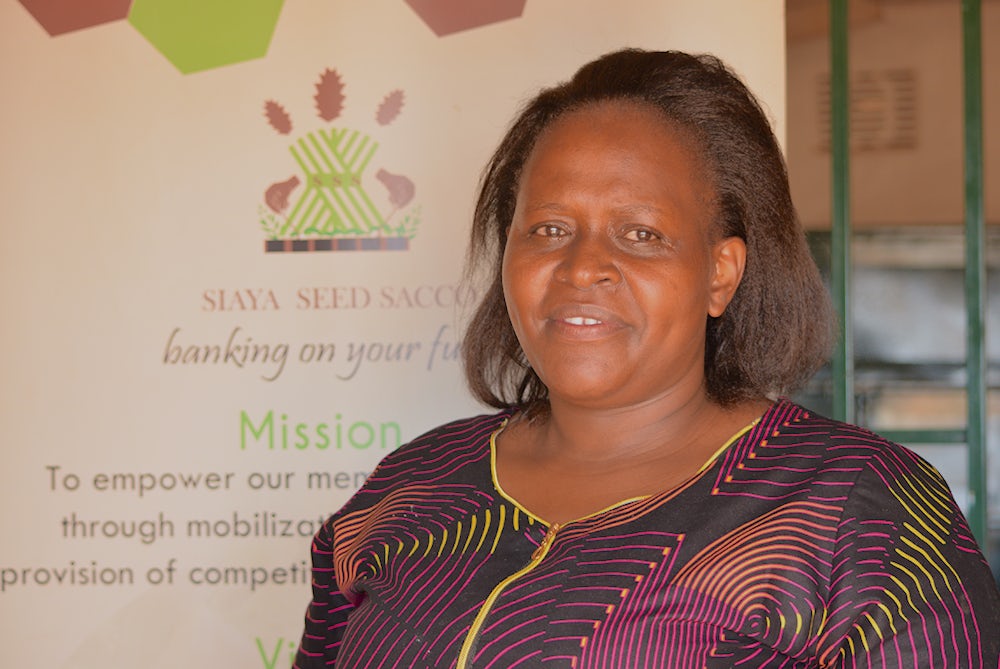
Financial literacy, savings and loans are critical links to growth for smallholder farmers. But for many, financial skills and resources are out of reach. To address the gaps, Heifer supports farmer-run savings and credit cooperatives to connect farmers to the tools they need to realize a stronger financial future.
In Kenya, for example, Heifer supported Victorine and the savings and credit cooperative she runs to expand into the poultry business and broaden its scope of services to local poultry farmers. The group offers loans to members at reasonable rates and provides financial literacy, savings and finance management training.
“I’ve seen a woman come from not having any shelter and living in a deteriorating condition to, after two or three years, becoming empowered because of [our] support,” Victorine said. “I wake up each day to ensure more people are empowered.”
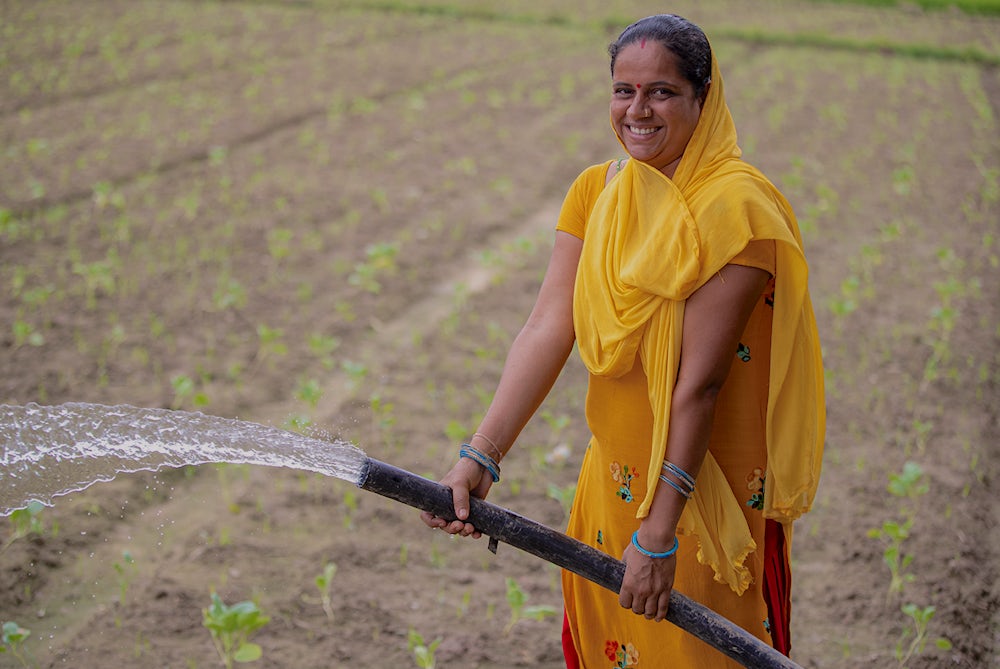
Many smallholder farmers depend on rainfall to irrigate their crops. But as droughts and delayed rains become increasingly common, the consequences for food producers are huge: without rain, production drops, prices rise and farmers struggle to make a Sustainable Living Income.
In Nepal, Heifer is installing wells to build farmers’ resilience and bring water to the waterless. For Tara Devi Mahato, a vegetable farmer in the southeastern village of Pashupatinagar, the well now provides water year-round, allowing her to lead a more resilient, dignified life.
“Rain patterns can either make or break us,” Tara said, recalling a recent dry spell that killed her chili plants and the days she’d spend praying to rain gods, hopeful for a cloud or two. “Water is so precious. I could not make a living if the rains were delayed.”